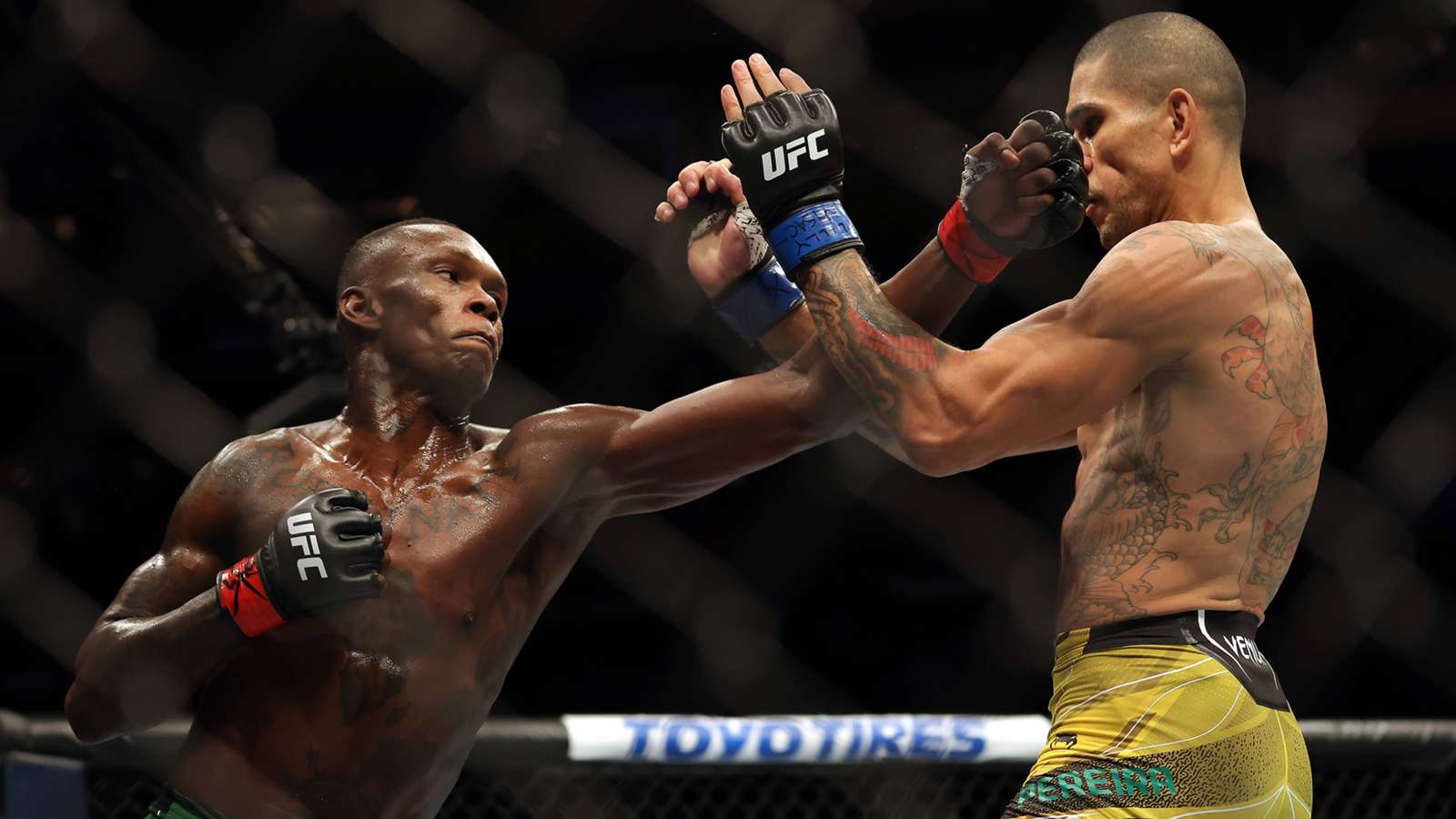Need a healthy testosterone boost? Attend a live UFC event, a UF sports professor says

Photo credit Jamie Squire, Getty Images
When Israel Adesanya knocked out Alex Pereira during the Ultimate Fighting Championship (UFC) 287 on Saturday night, the crowd’s reaction was explosively epic.
Fans encircling the octagon at Miami’s Kaseya Center erupted in their seats at the moment of impact, perfectly exemplifying what one Florida sports professor describes as “aggression-seeking desire.” What is behind this primal human craving, and why do events like live UFC matches quench it for spectators? It all comes down to testosterone.
“In the past, humans competed against others to secure resources, and to express aggression was a way to survive,” said Yonghwan Chang, Ph.D., an assistant professor of sport management at the University of Florida (UF). “In modern society, we don’t need to fight in that way anymore. But, from an evolutionary psychology perspective, spectator sports like mixed martial arts (MMA) (which form the basis for the UFC) are part of humans’ desire to express that same type of aggression.”
This desire is really just a yearning for more of the hormone that ups vitality, energy and strength (which is often boosted through direct physical activity). Nothing provides a secondhand boost of testosterone quite like witnessing a live, action-packed sport firsthand. And experiencing “blood competitions” such as the UFC, Dr. Chang said, take this vicarious hormonal hit to another level.
“People can alleviate and soothe their aggression and expression of desire through watching sporting events like the UFC,” Dr. Chang said. “Spectators feel like the athlete’s performance is their performance, and they can satisfy their aggression needs through the experience. Watching brutal sports like MMA perfectly satisfies that desire.”
In other words, it’s a productive way to express aggression (similar to lifting weights at the gym or taking a boxing class) but in a much more indirect way. Even the smaller elements of events like UFC matches appeal to spectators’ primal instincts.
“At UFC events, the background music is much louder than at other sporting events, and that alone makes people feel more anxiety and fearfulness (which is helpful for expressing more aggression because it heightens their emotions),” Dr. Chang said. “Also, the perceived calmness and loudness of announcers commenting make people have more anxiety, so that too is helpful to alleviate the aggression expression desire.”
To further explore the effects of testosterone on sports spectators, Dr. Chang co-authored a paper with Daniel L. Wann, Ph.D. for Frontiers in Psychology in February entitled Effects of Game Outcomes and Status Instability on Spectators’ Status Consumption: The Moderating Role of Implicit Team Identification.
“The major tenet of the biosocial theory of status is that winning a competition results in an increase in the level of testosterone,” the co-authors wrote. “Thus, an individual who won a competition not only feels higher status because of victory, but also desires continued success in subsequent competition as a result of increased levels of testosterone.”
In the case of the UFC 287 event over the weekend, Adesanya fans who watched the decisive knockout at 4:21 of the second round won right along with their favored athlete. It was a barbaric triumph for the event headliner, as Adesanya regained the UFC middleweight championship.
The vicarious victory was palpable, as the fans were jumping up and down, hugging their peers and collectively overcome with emotion. Adesanya’s fight was their fight, too. And the healthy, indirect testosterone hit it produced will undoubtedly keep them coming back to the octagon for more.
